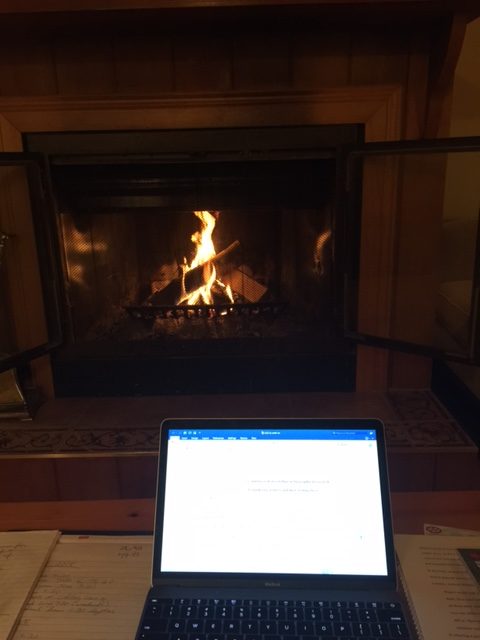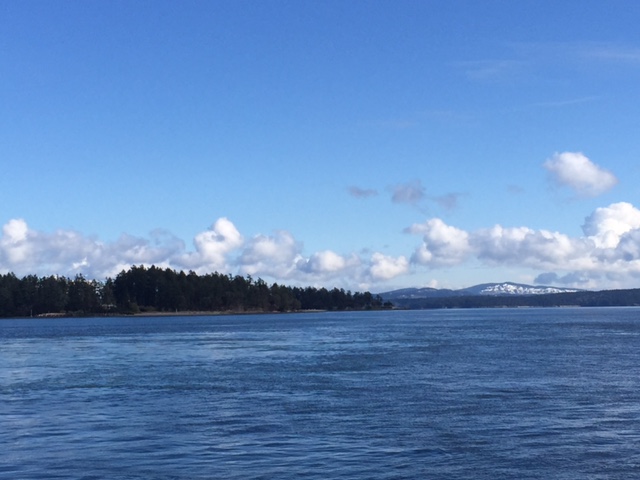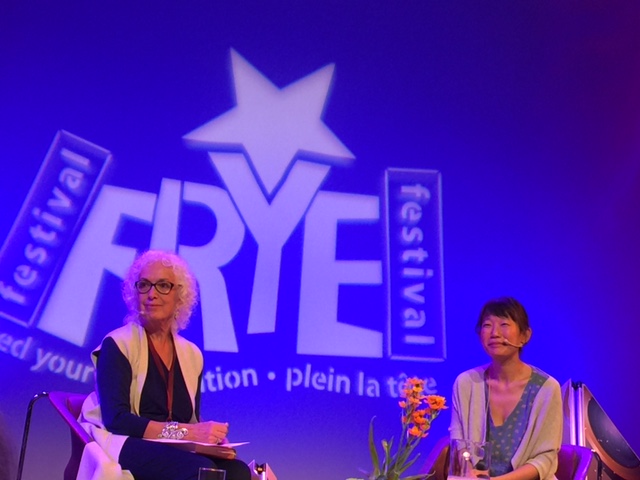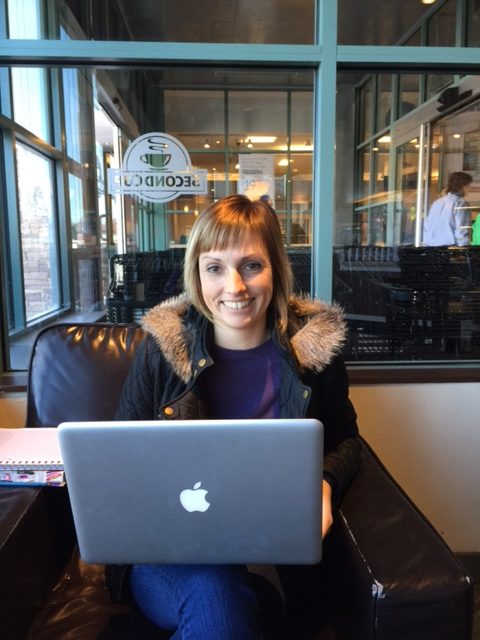[twitter-follow screen_name=’patriciagouthro’ show_screen_name=’no’]
Adult Education Links
Follow me on Twitter
[twitter-follow screen_name=’patriciagouthro’ show_screen_name=’no’]

I think that winter is my favourite time to write. I set up my computer at home in front of the fireplace and tap away, immersed in my books and ideas. The days that I am on campus tend to be filled with meetings, classes, conversations with students, and assorted interruptions. While I enjoy the social aspect of being at the university, one of the wonderfully flexible aspects of being a professor is being able to work at home on my writing days.
From my research on fiction writers, I have learned that there is a lot of overlap in terms of strategies that successful writers employ to get work projects completed and published. Some fiction authors set word count limits that they strive to achieve each day. Most authors have more or less set hours that they work regularly on their writing. Key to success is the ongoing self-discipline of setting and meeting specific targets.
In the summer I taught the introductory course in Educational Foundations to our Ph.D. cohort. One of the exercises I gave to the students asks them to reflect on the kinds of activities that they will need to do to develop good scholarly habits such as reading theory, writing on a regular basis, and organizing their schedule to accommodate multiple and diverse demands on their time.
With my own writing I always have a series of projects on the go. I usually have one at the conceptual/initial research stage, another that is my main focus with a targeted date for submission to the publisher, and the third will be something that is coming back my way for final copyedits. I usually try to have one independent and one co-writing project going on at the same time, as that way when my co-author is working on the project for a period of time, then I shift gears back to my sole-authored piece.
The length of time that it takes to get published often surprises students. The quickest turnaround that I have had on a journal article was just under a year, from the time of conceptualizing the topic to seeing it in print. The longest was when I had a piece accepted in a fairly prestigious journal in the UK that only published twice a year. The article had been accepted and was with the publisher when it came back to me with copyedits that were due back within 36 hours. The only problem was that the paper arrived a day after Hurricane Juan hit Halifax – we had no power, no water, and no internet for a week. This was before the internet was quite as widespread or easily accessed on our phones. For several days we were occupied with cutting down and clearing the trees that had fallen on our property, hauling water, and managing all the work that needed to done for the clean-up. By the time I got back to work, accessed my email, and realized that the copyedits had come my way, I had missed the deadline. I wrote to the editors who were sympathetic, but the next 3 editions were filled. By time it was published, it was four years from when I started writing the article – but despite the delay, it’s always sweet when you finally see your writing in print!
Every time I go on a research trip, hours of work and preparation go into seeking out participants, making contacts, and planning the trip. After the trip even more hours go into overseeing the transcription and review process, analyzing and coding data, and preparing papers and presentations on the research.
But the trip itself – when I actually get to meet the writers or the members of the organizations where I am doing research, and the opportunity to attend writing events and learn first-hand about the experiences of writers whose perspectives I’m trying to gain insights into through my research – that is what makes it all worthwhile.

In doing my research I’ve been privileged to meet a number of fascinating people, to hear their stories, and also to visit many beautiful and interesting places across Canada and elsewhere. On a research trip earlier this winter I was in Victoria, and here’s a picture taken from the deck of the ferry on my way out to Salt Spring Island, where I met the author C.C. Humphreys at his wife’s café in Ganges. It was a chilly day (we had to postpone our interview because of a heavy snowfall the day before), but even in the off-season you can see why so many people are drawn to visit the beautiful Gulf Islands on the west coast of Canada. You can certainly why it would be an inspiring place to write!
Last week I attended a few events at the Frye Festival in Moncton, including a public interview with the eloquent Madeleine Thien, author of the Giller Prize winning novel, Do Not Say We Have Nothing. This novel took her five years to write, and yet as she said, “I thought that was fast.” I can see how to write a novel of that complexity with such careful craft would easily take that many years.

In the question session at the end, some of the controversies with the current Trump administration and media were raised, following discussion about her research on the protests at Tiananmen Square. News regarding this event is highly censored within China itself, so that many people do not know the truth of what transpired when many ordinary people attempted to prevent the military from attacking student protesters. Thien notes that a problem with social media is the brevity of space used to articulate ideas; people present positions, but the conversation is not nuanced and the back-up arguments or facts are often left out. As we know, a twitter feed is limited to 140 characters.
Thien explained that although her own political positioning tends to lean to the left, what she feels is the most important space, a space that needs to be protected for civil society and democracy to survive, is the space where people meet to talk – what in adult education, we often refer to as the “commons”. For this, Tien said, “I would fight for the centre. I would fight for the public sector. We need to have these conversations.” I would agree.
Reading week is an opportunity to catch up on work that is difficult to accomplish during the regular term, for both faculty and students. The building is quiet, parking is easy, but on the downside, there are limited coffee options available on campus.
Next week I am heading off on a research trip to Victoria where I will be meeting a couple of different writers to talk with them about their creative writing processes. I’m hoping the snow will be a little less deep on the west coast as we were shut down with snowstorms three days last week. Looking forward to some interesting interviews!
Welcome to my first blog post. As an educator in the field of lifelong learning I try to constantly challenge myself to learn new things – which is not difficult, considering my lack of expertise in so many areas! During this sabbatical I’ve been working with my doctoral student, Erin Careless, pictured here, to learn how to build a social media platform to help share my research.

This is one of the perks of sabbatical – being able to take time to develop new skills. It’s also one of the benefits of working with graduate students – you can often learn a great deal from them. Erin’s research is on the ways that stepmothers learn to navigate their role using social media. Check out her blog at www.blog.steplife.ca
Next week I will be in Washington DC to do interviews with fiction authors for my current SSHRC grant on lifelong learning, fiction writing, and creativity. I look forward to being able to share more about my research through this blog in the future.